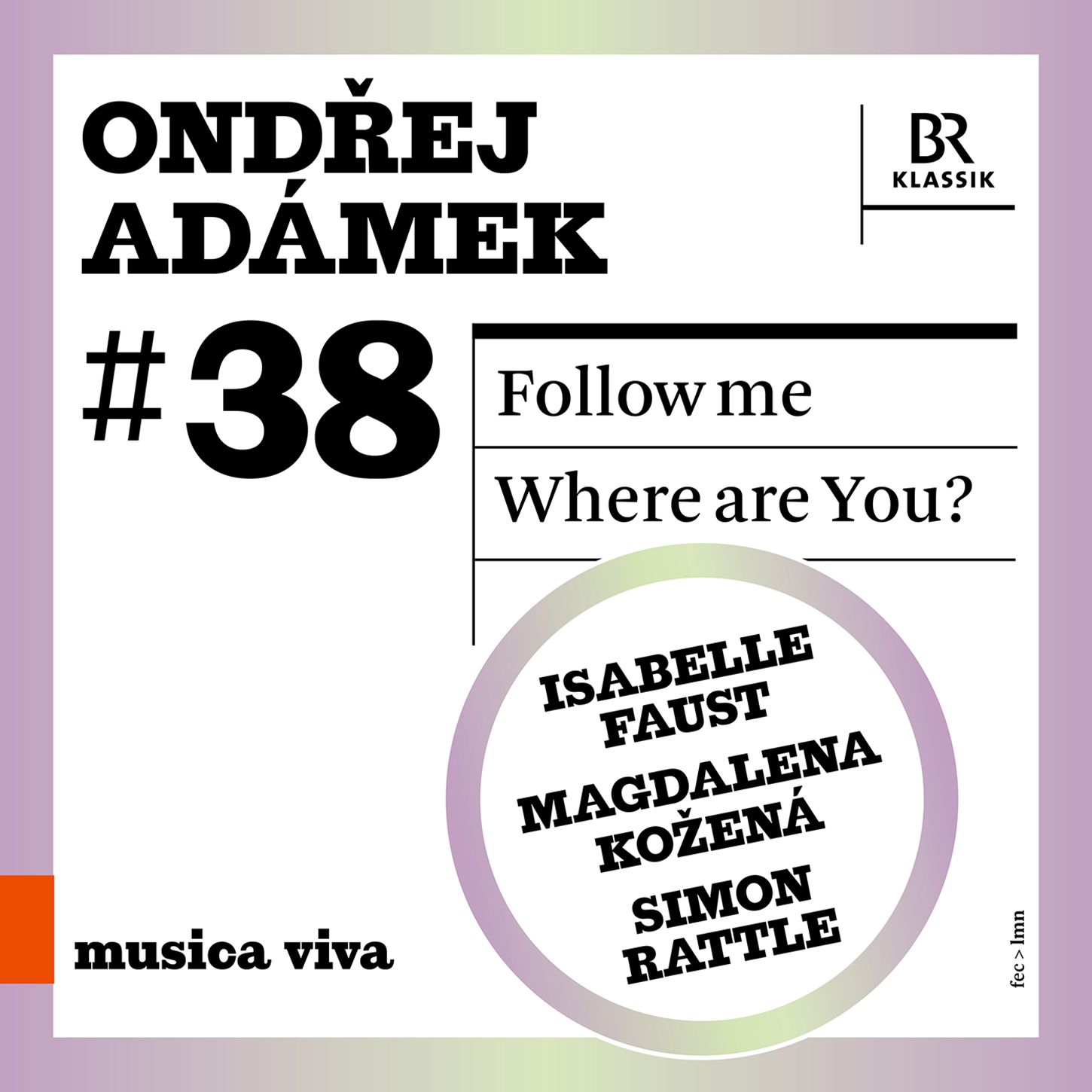The Music of Ondřej Adámek
Two highly significant World Premieres caught for posterity

The generating impulse for this post comes from a concert at London's Barbican Concert of Adámek's Where are You? (the capitalisation is exact) with Magdalena Kožená again as soloist, there with the London Symphony Orchestra under Rattle. That event presented the UK Premiere of that piece, coupled with Beethoven's "Pastoral" Symphony (No. 6: review here).
It is Kožená and Rattle again who perform the piece here, with a change in orhestra: the Bavarian Radio Symphony Orchestra.
Ondřej Adámek was born in Prague in 1979. He graduated from the composition department of the Academy of Music there in 2004 and from the Conservatoire National Supérieur in Paris in 2007. He came to Berlin in 2010 as a guest of the DAAD’s Artists-in-Ber- lin Programme, and stayed; in 2014–2015 Adámek was fellow of famous Académie de France, Villa Medici in Rome.
In 2018, Ondřej Adámek founded the vocal ensemble N.E.S.E.V.E.N, for which he also develops his own compositions and interdisciplinary programmes in cooperation with other ensembles. As composer and a conductor, Adámek is interested in the authenticity and originality of the voice, as well as questions of movement, gesture and theatricality on stage. He also "invents" sounds using traditional instruments - arguably, he takes traditional instruments and "invents" a new instrument from the same acoustic generator (that's how I hear it, anyway).
There is no doubting his interest in the quality of sound and timbre in Where are You? . Having the ability to hear a performance - an utterly vibrant performance of massive virtuosity at that - only enhances the strength of the piece. Unfortunately, a vital element is lost: the theatrical. IN teh concert hall, Kožená sings through a loudhailer at one point, and directs the orchestra towards the piece's end.
But what we do have is a preservation of the riotous nature of the piece: we hear an almost Stravinsky-circus element of juxtaposition of traditional, folkish materials with High Modernism. Spoken/sung languages used vary from Aramaic to Czech. Moravian, English and, in the final movement "Everywhere," Sanskrit. Adámek absolutely exults in the pluralism of it all. There is beauty here, too, a sort of post-Boulezian (so, post-post-Debussian) type, in the wonderful seventh movement, "Ecstasy". To have this as a reference recording is pure luxury: Kožená's technique is staggering (the sheer range she's asked to deliver in itself would deter most comers):
... and if the whole piece in one go is a bit daunting, here's a film of a sliver:
Where are You? dates from 2020; the companion piece here, Follow Me for violin and orchestra, dates from 2016/17. It is heard here in anotehr World Premiere capture with the virtuosa violinist Isabelle Fuast; the Bavarian RSO is conducted by Peter Rundel.
The generating idea here is the fluctuating dynamic between a leader and his or her followers in tandem with the idea of a "concerto" as as a "battle" between soloist, individual players, and groups. Again, Adámek's remit is huge, though, as he injects into his soundscape imitations of market vendors in Nairobi, or the"katajjag" of the Inuit people, a contest involving breath noise and throat singing, or (in the exaggerated vibrato of the solo violin opening), Japanese Noh theatre. Melodic fragments of Bach iform the central movement (it is cast in teh traditional trhee movements for a concerto). Again, in a sound-only representation, we lose a touch of theatre - here, the soloist is inimidated by the force of the orchestra, eventually delivering heer last fragments off-stage.
Adámek's music is compellingly alive. Rhythms, almost Bartókian in their earthiness, generate momentum. Breathing sounds separate movements.
Isabelle Faust's performance equals Kožena's in its dedication, strength and confidence.
Two highly significant World Premieres, then, caught for posterity. Adámek's music seems rarely performed in the UK; one hopes this disc, and the LSO's recent performances, will go some way to correct that misjustice.
